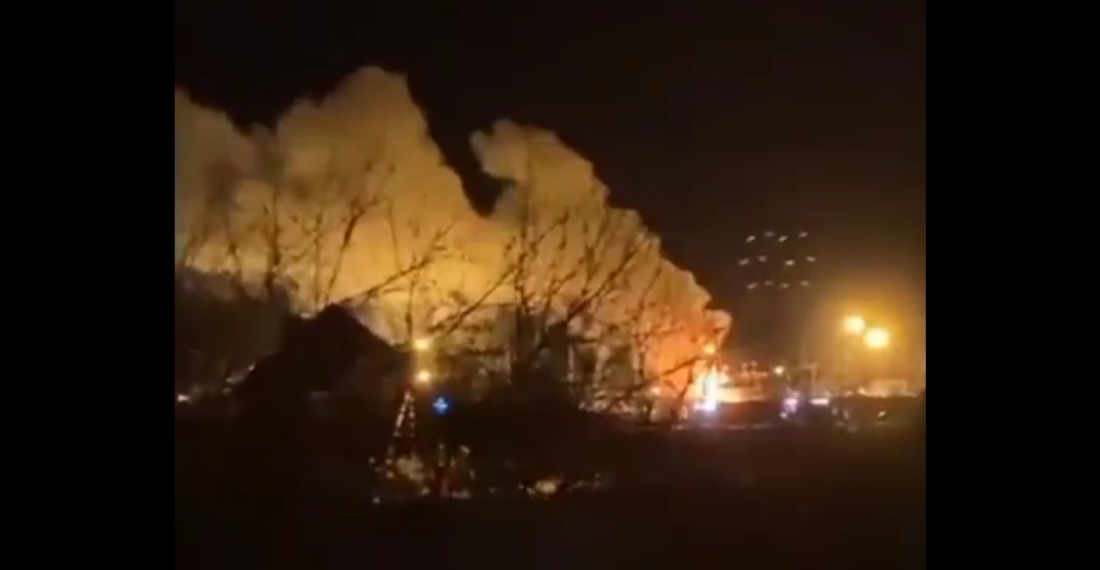Various media are reporting that Ukraine has launched a drone strike on power stations in the Russian city of Belgorod and the surrounding area overnight on Monday (17 April). Neither Ukraine nor Russia has officially confirmed the strikes.
Shortly after the strikes local Telegram channels reported problems with electricity supply in parts of the city.
The regional governor Vyacheslav Gladkov confirmed that "two fires were recorded at civilian facilities" in Belgorod and Belgorod district, but stopped short of specifying exactly what caused the fires.
In the past, suspected Ukrainian strikes inside Russian territory have rarely, if ever, been admitted as such by Russian authorities.
"There are no casualties. All emergency services are on site, the fire is being put out," Gladkov said.
Drone sightings and explosions in Russian border regions
Recently there has been an increase in reports of drone sightings and explosions in Russian regions bordering Ukraine, including in Belgorod Oblast.
Last week on Monday (10 April), a UAV carrying an explosive device fell on an airfield in Belgorod, damaging a fence and signal cable.
Over the winter, Russia launched months of attacks across critical civilian infrastructure, including power stations, across the whole of Ukraine in an apparent attempt to deprive Ukrainians of electricity during the colder months, and to demoralise them into submission.
Last night's strike suspected Ukainian strike in Belgorod, which is a major electric powered railway logistics hub for the Russia, could be a test "to see how long it takes Russia to repair the substation, plus listen to Russian cellphone communications related to it for cues as to Russia's electrical supply chain", according to U.S. analyst Trent Telenko.
Ukraine counteroffensive to begin in "near future"
Following reports that increasing amounts of western-donated military hardware are arriving in Ukraine, the Ukrainian Prime Minister Denis Shmyhal said in Washington D.C. on Friday (14 April) that their much-anticipated counteroffensive "will take place in the near future".
"We are aiming to implement all our plans and achieve our victory," Shmyhal said.






